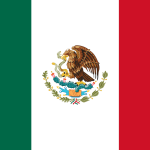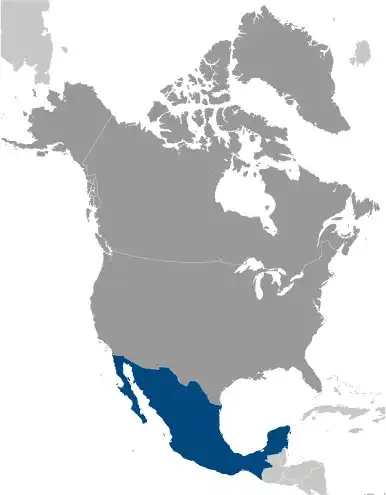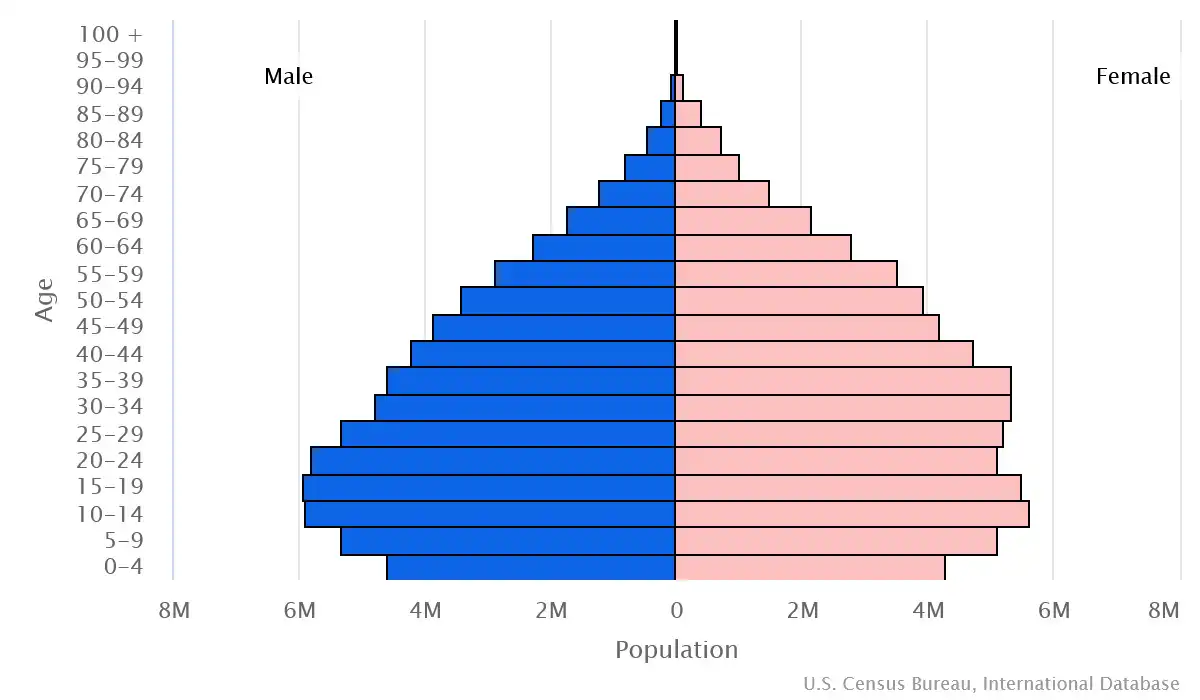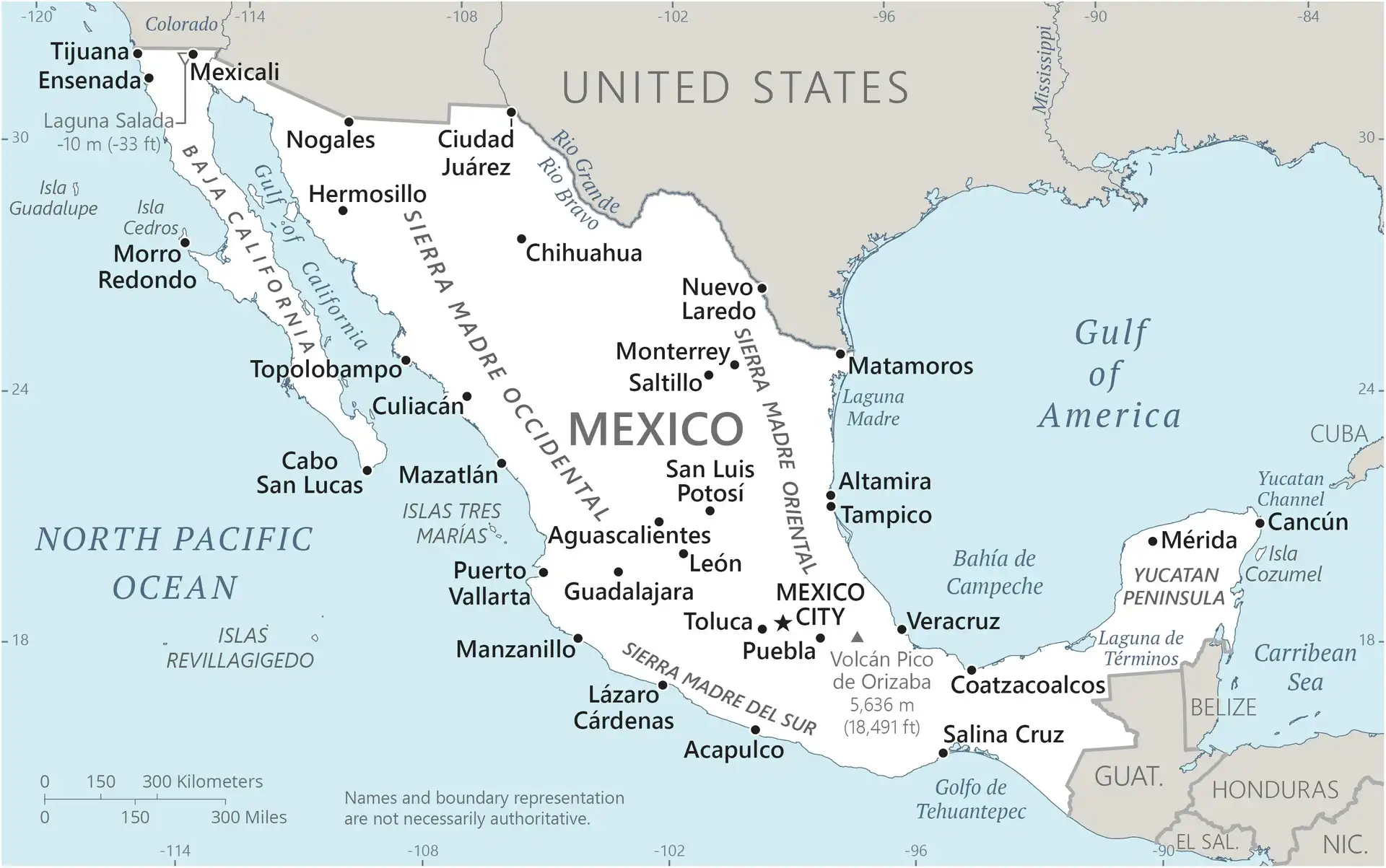
Mexico
Country Data Dashboard

| Government type: | federal presidential republic |
| Capital: | Mexico City (Ciudad de Mexico) |
| Languages: | Spanish only 93.8%, Spanish and indigenous languages (including Mayan, Nahuatl, and others) 5.4%, indigenous only 0.6%, unspecified 0.2% (2020 est.) |
People & Society
Ethnicity (2012 est.)
Religion (2020 est.)
Age structure

Economy
Economic overview
upper-middle income economy; highly integrated with US via trade and nearshore manufacturing; low unemployment; inflation gradually decreasing amid tight monetary policy; state intervention in energy sector and public infrastructure projects; challenges from income inequality, corruption, and cartel-based violence
Real GDP (purchasing power parity) in Billion $
Real GDP per capita in $
Exports & Imports in billion $
Top 5 Import Partner in 2022 (81%)
Top 5 Import Commodities in 2022
- refined petroleum ⛽
- vehicle parts/accessories 🛠️🚗
- machine parts ⚙️
- integrated circuits 💻
- natural gas 💨
Top 5 Export Partner in 2022 (81%)
Top 5 Export Commodities in 2022
- cars 🚗
- computers 💻
- vehicle parts/accessories 🛠️🚗
- crude petroleum 🛢️
- trucks 🚚
Geography
Map

Area
Natural resources
- petroleum 🛢️
- silver 🪙
- antimony 🏺
- copper 🟧🪙
- gold 💰
- lead 🪙
- zinc 🔩
- natural gas 💨
- timber 🌲
Climate
varies from tropical to desert
Historical Background Information
Mexico was the site of several advanced Amerindian civilizations -- including the Olmec, Toltec, Teotihuacan, Zapotec, Maya, and Aztec -- until Spain conquered and colonized the area in the early 16th century. Administered as the Viceroyalty of New Spain for three centuries, it achieved independence early in the 19th century. Elections held in 2000 marked the first time since Mexican Revolution in 1910 that an opposition candidate -- Vicente FOX of the National Action Party (PAN) -- defeated the party in government, the Institutional Revolutionary Party (PRI). He was succeeded in 2006 by another PAN candidate Felipe CALDERON, but Enrique PEÑA NIETO regained the presidency for the PRI in 2012. Left-leaning anti-establishment politician and former mayor of Mexico City (2000-05) Andrés Manuel LÓPEZ OBRADOR, from the National Regeneration Movement (MORENA), became president in 2018.
The US-Mexico-Canada Agreement (USMCA, or T-MEC by its Spanish acronym) entered into force in 2020 and replaced its predecessor, the North American Free Trade Agreement (NAFTA). Mexico amended its constitution in 2019 to facilitate the implementation of the labor components of USMCA.
Mexico is currently the US's second-largest goods trading partner, after Canada. Ongoing economic and social concerns include low real wages, high underemployment, inequitable income distribution, and few advancement opportunities, particularly for the largely indigenous population in the impoverished southern states. Since 2007, Mexico's powerful transnational criminal organizations have engaged in a struggle to control criminal markets, resulting in tens of thousands of drug-related homicides and forced disappearances.
